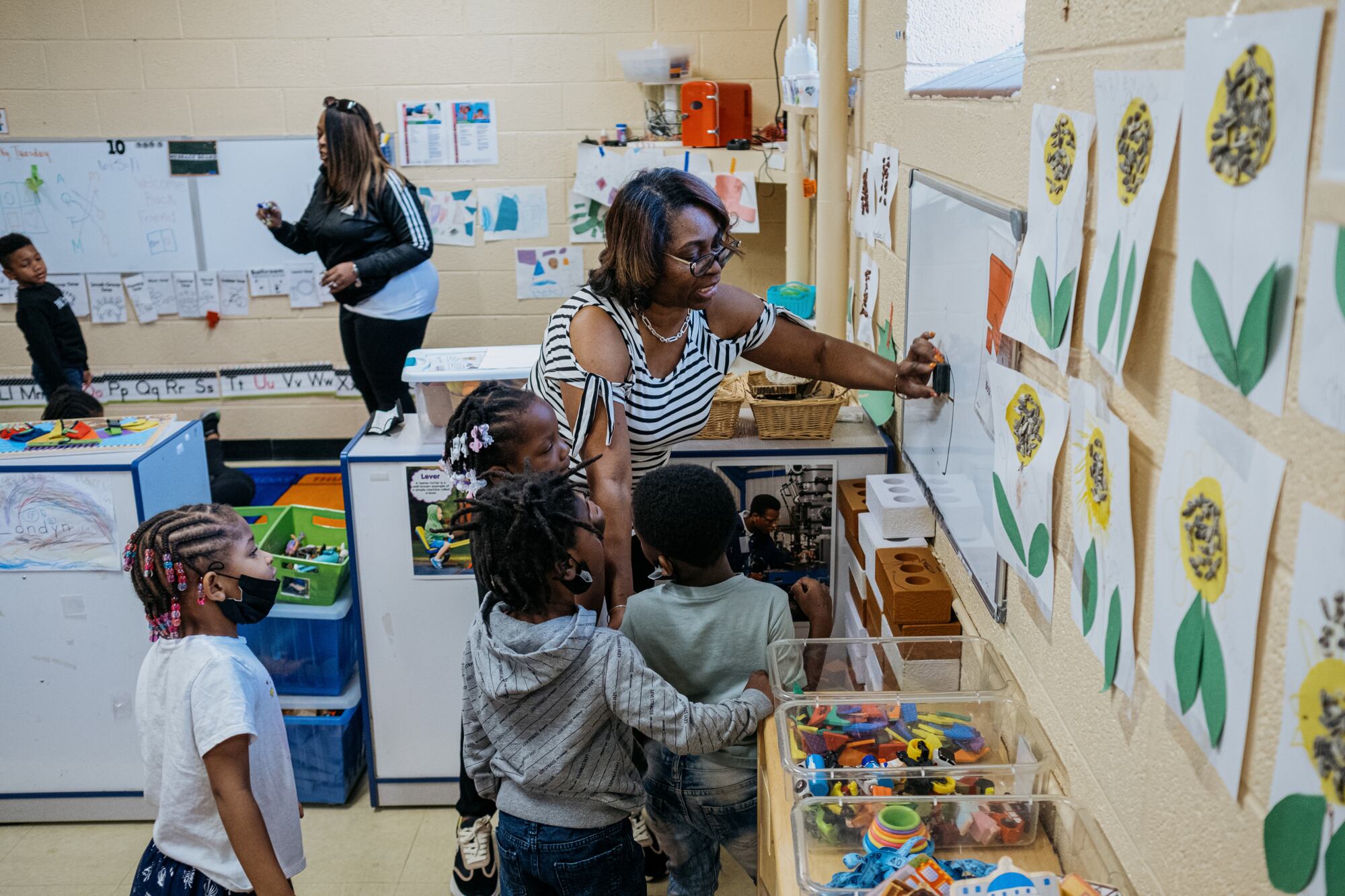Recent efforts to expand Michigan’s free preschool program have run up against a persistent obstacle: a shortage of teachers.
So while Gov. Gretchen Whitmer got plenty of applause last week when she announced plans for another expansion of the Great Start Readiness Program — this time opening it to every 4-year-old in the state, regardless of family income — her proposal also raised some eyebrows.
And when Whitmer provides details of her universal preschool proposal in a budget presentation this week, early educators will be watching closely to see how she plans to draw more teachers into the workforce.
“They don’t even know if they’re going to have the talent,” said Nina Hodge, owner of Above and Beyond Learning Center, which offers GSRP classrooms in Detroit. “We need a plan for these teachers. Because there’s a shortage.”
Underlying that shortage is a yawning pay disparity. A certified early childhood educator can make $20,000 more per year working with K-3 students rather than 4-year-olds. The median salary for a GSRP lead teacher was $37,000 in 2020-21, while the average K-12 teacher made $57,000. (Certified preschool teachers are among the highest paid early educators in Michigan; most child care workers make far less.)
Michigan’s preschool pay gap is among the widest of any state-funded program in the nation, and it fuels a high rate of teacher vacancies. In 2020-21, centers had 89 unfilled positions for lead teachers, or 4% of the workforce, a vacancy rate that doesn’t include classrooms that never opened because of hiring challenges.
Because GSRP is funded by the state, closing the pay gap for preschool teachers would require an increase in per pupil funding for the program. Funding for GSRP increased rapidly in recent years to $9,150 per pupil, but that’s still well below the true cost of the program, which state officials peg at $12,700.
Offering seats to many more families, as Whitmer hopes to do over the next four years, would require even more funding.
Whitmer spokesperson Bobby Leddy said additional details about the proposal would be released with the governor’s budget recommendations, which are expected on Feb. 8, but he said the state’s budget surplus, which is projected to hit $9.2 billion this fall, would be a key source of funding for the expansion.
A shift toward free preschool for all 4-year-olds — which the Legislature will debate this session — could increase access and improve teacher pay at the same time. Indeed, that’s what happened in other states with universal preschool programs, said Christina Weiland, a professor at the University of Michigan who studies early childhood education.
With enough funding, Michigan could pump more money into each classroom, supporting higher wages, while also paying to open new classrooms.
“It’s a problem that’s highly solvable if you put the resources to it,” she said. “It would really be a shame, especially before we have the details from the administration, to get to this point of false tradeoffs … about what could be possible.”
Whitmer’s proposed four-year timeline gives lawmakers time to strike a balance, attracting enough educators to support new classrooms.
But for providers struggling to keep existing GSRP classrooms open, it’s clear which needs to come first.
“We’ve had a hard time hiring and maintaining the enrollment levels that they want us to, just because there are so many GSRP programs in the same area that I’m in,” said Summur Powers, director of Creative Kidz Learning Center in Detroit.
“I know we want to reach for the stars, but I think it would be great to sit tight for a second.”
Koby Levin is a reporter for Chalkbeat Detroit covering K-12 schools and early childhood education. Contact Koby at klevin@chalkbeat.org.






